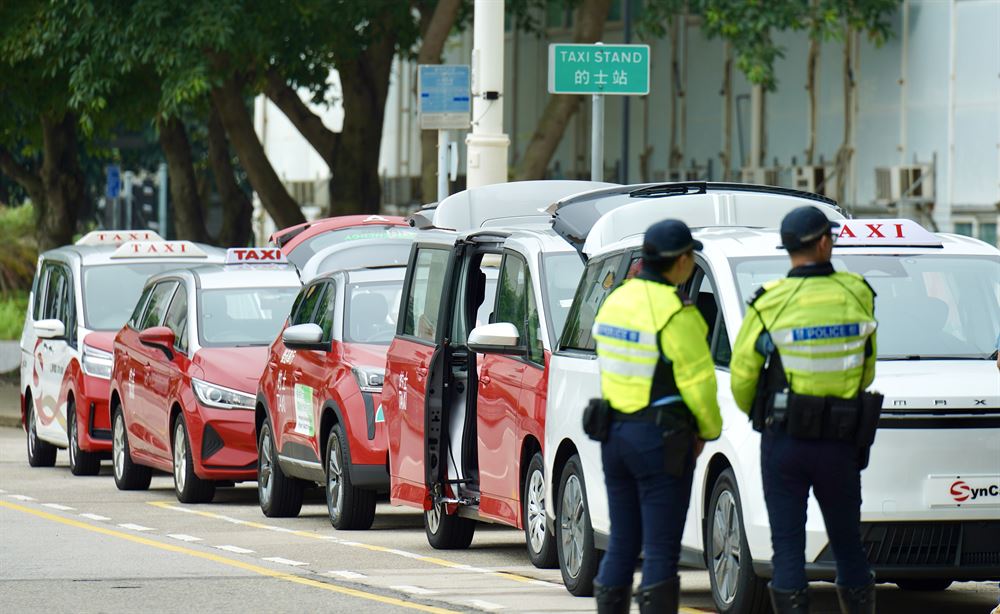
HONG KONG – As ride-hailing platforms like Uber compete with conventional taxis for passengers in Hong Kong, the question of who is responsible for ensuring drivers are operating legally has come under scrutiny.
All drivers taking fares must possess either a taxi license or a hire-car permit to stay on the right side of the law. However, the sector remains divided over whether ride-hailing companies should bear legal responsibility for verifying the licensing status of their drivers.
The dispute comes as the Hong Kong Special Administrative Region government plans to present new research on point-to-point transport services to the Legislative Council in July.
ALSO READ: Ride-hailing: HK govt to present findings to LegCo in July
The government report will not provide a concrete proposal for ride-hailing regulations given the specific framework is still under discussion with the taxi sector, according to Frankie Yick Chi-ming, a lawmaker representing the transport sector.
The best solution would be for the government to buy back a portion of the taxi licenses and then issue new ones, which would allow for permanent legal competition.
Simon Lee Siu-po, Asia-Pacific Institute of Business, Chinese University of Hong Kong
But Yick said reform was needed after years of unfair competition from Uber had slashed the profits of traditional taxis businesses, as he reminded online ride-booking companies “to ensure their drivers have either a hire-car permit or a taxi license during the platform’s license verification process”.
Uber does not conduct due diligence or require its drivers to provide any evidence of their licensing status, even though providing such services in Hong Kong is only legal if the vehicle registered possesses either a hire-car permit or a taxi license.
The ride-hailing platform, popular among Hong Kong residents for its convenience, has been operating in the city for a decade with about 14,000 active drivers. In stark contrast, the Transport Department had issued only 1,115 private-hire-car permits by the end of 2021.
“The taxi service in Hong Kong has been poorly run,” noted Simon Lee Siu-po, an honorary fellow at the Asia-Pacific Institute of Business at the Chinese University of Hong Kong. “Many Hong Kong taxi drivers do not want to take short trips, long trips, passengers in wheelchairs or those with pets.”
Lee suggested the city’s inadequate taxi service is why the Hong Kong government has turned a blind eye to illegal Uber services.
A survey conducted by a local newspaper from May 18 to Tuesday showed that over 60 percent of the 1,124 respondents were dissatisfied with the taxi service in Hong Kong. Nearly 85 percent of those surveyed called for an overhaul of the taxi sector and better regulation of ride-hailing platforms.
On Wednesday, the Transport Department reported a surge in serious customer complaints against taxi drivers, with the number nearly doubling from 574 in 2022 to 1,006 last year.
The entry of Chinese mainland ride-hailing providers into the Hong Kong market is stirring further legal issues. Lee said the Hong Kong government will eventually need to address the regulatory challenges posed by the growing sector.
READ MORE: CE advises cabbies against sting ops on Uber drivers
Amap, operated by e-commerce giant Alibaba, and Didi Chuxing announced the launch of online ride-booking services in Hong Kong this year.
CaoCao Inc, another Chinese ride-hailing provider backed by Geely Automobile Holdings, filed its prospectus with the Hong Kong Stock Exchange in April, signaling its intention to expand operations into Hong Kong.
Currently, Amap or Didi Chuxing ride-hailing services operate only under taxi licenses, rather than hire-car permits.
Alex Liu Kin-sing, managing partner at law firm Boase Cohen & Collins and a panel chairman of the Transport Tribunal, has called for a comprehensive overhaul of Hong Kong’s personalized point-to-point transport industry.
He described the situation between Hong Kong’s traditional taxi sector and ride-hailing services as “unsustainable, unsatisfactory, and harmful to Hong Kong’s image”.
Several videos went viral last month showing passengers, believed to be undercover taxi drivers, taking Uber services and reporting drivers to the police upon arriving at their destinations.
Yick highlighted the importance of “fairness” when discussing the upcoming ride-hailing regulations. To avoid creating unfair competition, he called on the government to stop issuing ride-hailing licenses for free and instead set fees comparable to the current charging system for taxis.
Unfairness in the system is rooted mainly in the high cost of taxi licenses. In Hong Kong, taxi licenses are traded freely in the secondary market without any stamp duty. The licenses have no expiration date, and their value is inflated due to their inherent scarcity and unrestricted trading. Over the past decade, the price of an urban taxi license in Hong Kong reached a peak of HK$7.23 million ($925,673) in 2016, before hitting a rock bottom of HK$3.29 million this year.
Lee said that a taxi license is “a monetary product rather than a simple right to operate”.
“After rectifying the problem, I think legalization of ride-hailing services will come or partially come, as many international cities have such services,” he added.
Since 1998, the Hong Kong government has capped the number of taxi licenses at 18,088 for urban and New Territories taxis. No new licenses have been issued for either category in the nearly three decades since, holding supply below the level of demand.
“The best solution would be for the government to buy back a portion of the taxi licenses and then issue new ones, which would allow for permanent legal competition,” Lee said.
Contact the writer at tianyuanzhang@chinadailyhk.com


